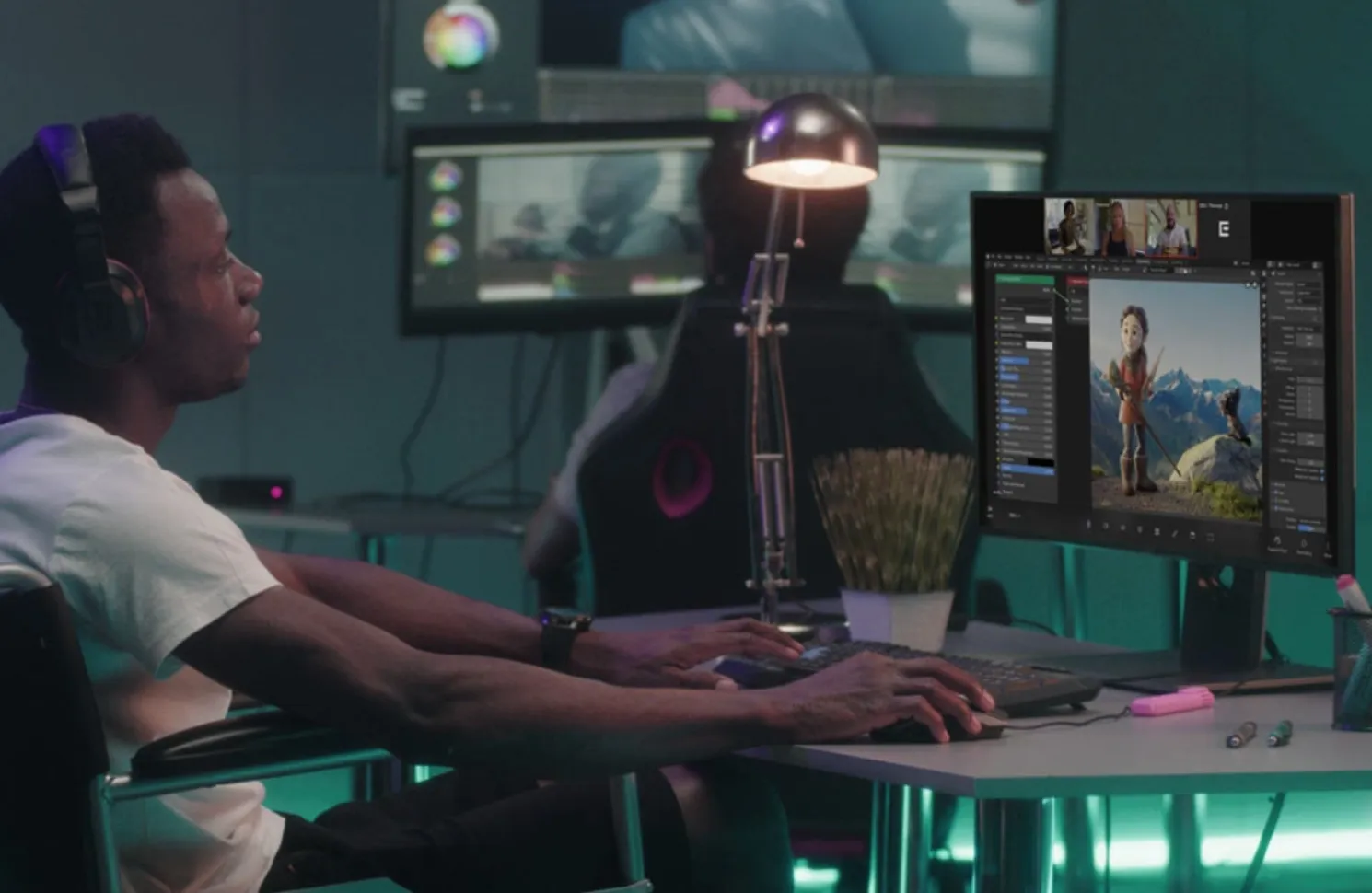

Transformation is a people problem—here’s how the best teams solve it
JUN. 12, 2025
2 Min Read
Unlock digital transformation success through leadership, not just code—discover how group coaching helps.
Successful digital transformation demands more than code—it requires leadership. In software engineering, technical expertise gets you hired, and soft skills make you indispensable. But real change depends on adaptive leadership and cross-functional vision.
And yet, despite billions invested annually, 88% of AI proofs of concept (PoCs) never reach production—often due to misalignment between business goals, data, and operational readiness.
That’s exactly where group coaching comes in. It addresses the human bottlenecks of transformation, building trust, alignment, and decision-making capacity among engineering leaders.
At Lumenalta, we use this high-leverage practice to help elite technical teams sharpen leadership through structured collaboration. In weekly sessions, developers troubleshoot professional and personal challenges in a confidential peer forum. The result: tighter alignment, more resilient leadership, and smarter delivery across remote-first teams.
How group coaching helped unblock progress while delivering a key feature rollout
One of the most practical benefits of Lumenalta’s group coaching model is how it equips developers with repeatable tools for high-stakes communication. In one recent cohort, a developer shared how the “fire circle” method—a framework built around status check-ins, active listening, clarifying questions, and grounded feedback—transformed his approach to a critical client challenge.
His team was midway through a major data platform rollout when unexpected complexity hit: the client’s software team was simultaneously integrating a new video streaming engine, and communication across teams broke down. Priorities shifted without warning, key details were unclear, and development slowed under the weight of uncertainty.
In a group coaching session, the developer raised the issue. Instead of trying to power through, the group helped him pause, analyze the real communication gap, and tap into internal connections who had insight into the client’s evolving system.
Armed with a clearer context and a new communication strategy, he led a structured, transparent conversation with both his team and the client. They clarified dependencies, reset expectations, and aligned on a focused plan. The result: the team shipped core features on time, despite the shifting landscape, and got the rollout back on track.
What’s in it for clients?
That kind of outcome isn’t rare. Because group coaching compounds technical talent into strategic capacity, clients experience faster delivery, lower risk, and deeper innovation.
Here’s what clients can expect:
- Faster resolution: Challenges that might stall one developer for days are solved in hours with group insight.
- Higher quality deliverables: Collective input means fewer blind spots, more robust systems, and stronger user outcomes.
- Deeper innovation: Dual-track thinking—designing and building in parallel—leads to better options, faster.
- Reduced risk: Assumptions and architectures are cross-checked early, preventing downstream issues.
- Lower total cost of ownership: Shared learning eliminates repeated mistakes and reduces rework.
- Better alignment with business goals: Developers operate with a clearer view of business context, leading to decisions that drive meaningful impact.
Is group coaching for every team?
Not always.
For routine delivery with clear specs, traditional structures may suffice. But for teams working in ambiguity, navigating complexity, or building frontier tech, such as AI threat detection or edge computing, the stakes shift.
In these environments, misalignment is costly. Mistakes carry strategic risk. And small breakdowns can spiral into major setbacks.
Elite teams at this edge need more than technical skills—they need cohesion, clarity, and adaptive leadership. Group coaching provides exactly that.
The secret advantage top-performing teams use
Experience may be the best teacher, but group coaching compounds it. By tapping into collective wisdom, leaders gain a powerful knowledge multiplier that accelerates learning beyond individual trial and error.
Each week, eight senior leaders across disciplines tackle real-world client challenges. The structure is simple: someone shares an issue, the group asks targeted questions, and experienced talent coaches guide the conversation, blending technical, strategic, and domain expertise.
How coaching drives real-world results
While developer sessions often center on technical decision-making, our team leads focus on leadership challenges, from communication and stakeholder management to hiring and delivery strategy.
In one instance, after winning an engagement, a team lead identified an opportunity to shift a client’s architecture from Java containers (100 servers in EC2) to serverless AWS, cutting total cost of ownership and improving performance. Because the change was out of scope, he needed to make a compelling business case to the client.
He brought the idea to the group. While he initially focused on cost savings, his peers quickly reframed the real value: the new setup would allow the client to revert to their original environment if needed, offering optionality, not just efficiency. That shift in framing proved more persuasive and aligned with the client’s priorities.
As a result, the client greenlit the initiative, extended our scope, and entrusted us to manage the transition with confidence. Once the new setup was stable, the legacy system was retired.
Another session unpacked the value of certifications versus hands-on experience. The conversation, though seemingly simple, revealed nuanced market dynamics. The consensus: in high-stakes environments, lived experience outpaces credentials every time.
Why this model works better than one-on-ones
Group coaching accelerates outcomes by replacing isolated workflows with real-time collaboration. When you blend specialized expertise without the bloat, teams deliver smarter solutions—faster.
So, how does this compare to one-on-one check-ins with HR, a team lead, or a manager?
- Intentional: Group sessions aren’t limited by location or hierarchy. Everyone has a voice. This cultivates ownership and shared responsibility.Says Sarah Russell, Coaching and Onboarding Manager, “When developers feel invested beyond their individual contributions, they naturally elevate performance and commitment.”
- Enabled by structure: Sessions are facilitated by a talent coach, preventing drift and ensuring actionable outcomes. Every conversation moves toward measurable value for developers and clients alike.
- Transnational expertise: Remote-first by design, our teams bring global perspectives that sharpen collective intelligence. “We identify recurring patterns across projects,” says Russell. “That creates a flywheel effect—solutions grow more sophisticated as knowledge compounds.”
- Not siloed: Traditional structures isolate disciplines and delay coordination. Group coaching breaks barriers—front-end, back-end, UX, business logic—so specialists act with shared context, not in isolation.
No more waiting days to resolve blockers. With real-time collaboration, complex problems get solved in hours.
The bottom line: Better results, faster. Lower cost, higher resilience. This is how organizations transform AI-first ambitions into reality.
Core leadership capabilities developed through group coaching
So, how does group coaching turn developers into strategic leaders?
It starts with strategic problem-solving. In facilitated sessions, developers tackle complex scenarios that mirror client realities. The result: sharper systems thinking, calm under pressure, and clear decision-making in ambiguity.
Adaptive thinking follows. Exposure to diverse disciplines challenges assumptions and expands mental models, critical for navigating evolving client needs with speed and creativity.
A collaborative mindset is also core. In lean, diverse squads, leadership isn’t top-down—it’s shared. Group coaching strengthens high-trust, high-performance communication across teams.
Then there’s emotional resilience. Remote work can amplify isolation. Group coaching offers a space for open dialogue and peer support. That connection builds perspective and staying power.
Ultimately, group coaching equips developers to lead with clarity, empathy, and impact. That shows up in client solutions that are sharper, faster, and more aligned.
The human side of technical leadership
It’s not just about better decisions. It’s about braver ones.
One of our senior engineers joined a group coaching session during a deeply challenging personal moment. He was overwhelmed, struggling with negative thoughts about his performance, and unsure of how to keep showing up for his team.
But in that circle, something shifted. Hearing his peers openly share their own challenges helped him realize he wasn’t alone. Their willingness to show up, despite what they were going through, offered perspective and hope.
His coach helped him recognize that struggle didn’t make him weak. It made him human.
And from that awareness came something powerful: the courage to lead from where he really was. Not despite it, but because of it.
Because at the end of the day, human transformation fuels technical leadership.
Transform your digital strategy with our digital expertise.



